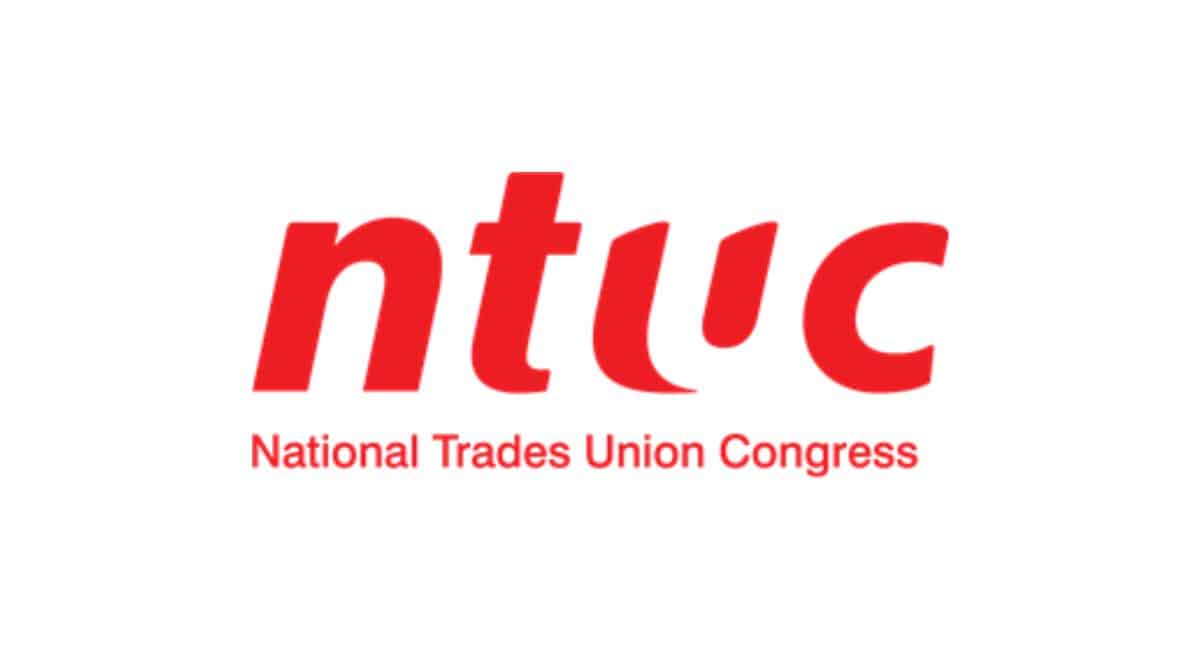Singapore’s economic landscape is rapidly evolving, driven by technological advancements and shifting global market dynamics. At the heart of this transformation is the need for a skilled, adaptable workforce and innovative business strategies. The NTUC CTC Grant, standing for National Trades Union Congress Company Training Committee Grant, emerges as a pivotal initiative in this context.
This grant offers critical support for Singaporean businesses and their employees. It is not just a financial incentive, but the NTUC CTC Grant also represents a strategic move towards a more resilient and competitive economy.
Key Takeaways
|

Table of Content:
Table of Content
About the NTUC CTC Grant Singapore
The NTUC CTC Grant, in conjunction with the Employment and Employability Institute (e2i) and one of the Singapore Government Grants, an innovative program designed to bolster Singapore’s workforce capabilities and business growth. Launched as part of a broader effort to enhance skills, productivity, and organizational development, this grant aims to bridge gaps in workforce capabilities and align them with the nation’s economic ambitions.
At its core, the NTUC CTC Grant supported by e2i is about more than just funding. It’s a catalyst for transformation, enabling companies to reassess and redesign their training and operational strategies to stay competitive in an ever-changing business environment. By focusing on upskilling and reskilling, the initiative seeks to prepare both businesses and their workforce for future challenges and opportunities.
The Role of Company Training Committees (CTCs)
Central to the success of the NTUC CTC Singapore Grant are the Company Training Committees (CTCs). These committees are collaborative platforms where unions and management work together to identify skills gaps and training needs within organizations. Their role is to formulate and implement transformation plans that yield better business outcomes and enhance worker capabilities.
CTCs act as the bridge between the workforce’s current skills and the skills required for the future, ensuring that training initiatives are not just relevant but also forward-thinking. They play a pivotal role in customizing training programs to fit the unique needs of each business, thereby maximizing the impact of the grant.
Eligibility Criteria and Application Process
To benefit from the NTUC CTC Grant, companies must first meet specific eligibility criteria, which includes:
1. Unionized workforce requirement
To qualify for the NTUC CTC Grant, companies must have a unionized workforce. This requirement emphasizes the importance of collective representation and cooperation between employers and employees.
2. Commitment to Company Training Committee (CTC)
Additionally, businesses should demonstrate a commitment to establishing a Company Training Committee. This committee serves as a vital platform for discussing and implementing training initiatives beneficial to both the company and its employees.
Once a company forms a CTC, it can apply for the grant. The application process is as the following:
1. Formation of Company Training Committee (CTC)
Companies willing to benefit from the grant need to initiate the formation of a CTC. This committee acts as the focal point for planning and executing training programs aimed at enhancing employee skills and overall organizational productivity.
2. Grant application submission
Once the CTC is established, companies can proceed to apply for the NTUC CTC Grant. The application involves submitting a comprehensive training plan that delineates the existing skill gaps within the organization. This plan should detail the proposed training programs designed to bridge these gaps effectively.
3. Focus on practical training
The grant application emphasizes the significance of practical, result-oriented training. Training programs should focus on addressing identified skill deficiencies, with a clear objective of achieving tangible improvements in productivity and overall business performance.
By following this streamlined process, companies not only fulfill the grant’s eligibility criteria but also set the stage for meaningful and impactful training initiatives that align with their organizational objectives.
Strategies for Effective Utilization of the NTUC CTC Grant Singapore
For businesses, the NTUC CTC Grant is not just a source of funding but a strategic tool to enhance their competitive edge. Effective utilization of the grant involves a deep understanding of the business’s current challenges and future goals.
By integrating these strategic approaches and using the NTUC CTC Grant to its fullest potential, businesses in Singapore can not only address their immediate needs but also fortify themselves for long-term success and sustainability.
1. Strategic alignment with business goals
Effective utilization of the e2i grant portal NTUC CTC Grants extends beyond mere financial support. It serves as a strategic instrument to bolster a company’s competitive edge. The key is to comprehensively understand the current challenges and future aspirations of the business.
2. Aligning training with objectives
Strategic utilization entails aligning training initiatives with the core objectives of the business. Prioritize areas such as digital transformation, leadership development, and technical skill enhancement to ensure the company remains competitive amid evolving industry trends.
The aim is to foster a culture of continuous learning and improvement that transcends the training room, impacting day-to-day operations.
3. Innovative training approaches
The grant can be leveraged to fund innovative approaches like on-the-job training, mentorship programs, and cross-departmental collaboration. These initiatives not only impart practical skills but also contribute to a more cohesive and engaged workforce. The focus is on nurturing talent within the organization.
4. Exploration of new technologies
Businesses should utilize the e2i funding eligibility grant to explore and adopt new technologies and processes. Considering an effective ERP software with a flexible pricing scheme partnered with a CTC grant could streamline operations, enhance productivity, and drive efficiency across various business functions. Embracing innovation is pivotal in staying ahead in today’s dynamic business landscape.
How do we know the pricing scheme of an effective ERP system? Well, click the image below and you can see a pricing scheme of one of the well-known ERP vendors in Singapore, HashMicro, which offers up to 70% funding support from NTUC CTC Grant.
Success Stories: Impact of the NTUC CTC Grant Singapore
The transformative power of the NTUC CTC Grants is best illustrated through success stories. Several Singaporean businesses have harnessed this opportunity to remarkable effect, achieving significant advancements in workforce skills and business outcomes.
1. Advancements in workforce skills
The NTUC CTC Grant’s transformative influence shines through numerous success stories within Singaporean businesses. One striking example comes from a local manufacturing firm that strategically utilized the grant to train its employees extensively in advanced automation and data analytics.
This initiative resulted in a remarkable 30% surge in productivity levels and a notable enhancement in the overall quality of the manufactured products.
2. Customer service and digital marketing enhancement
Another compelling narrative unfolds in the retail sector. A Singaporean retail company, leveraging the grant, prioritized comprehensive training in customer service and digital marketing for its employees. This focused effort yielded tangible results, with the company experiencing higher rates of customer satisfaction and a noticeable upswing in sales figures.
3. Employee morale and engagement
Through skill-enhancement programs, employees feel empowered and engaged, leading to increased job satisfaction and a more motivated workforce.
As reported by The Independent Singapore, the NTUC CTC grants has significantly boosted employee morale and engagement by raising wages for about 1,500 workers across 84 companies, resulting in a 5.2% average increase.
This wage increase, along with yearly pay raises, has notably increased job satisfaction and motivation among employees, showcasing the direct impact of the grant on workforce well-being. This shows how companies and unions work together, fostering a positive environment for skill development and industry-relevant training. Ultimately, this elevates employee morale and engagement levels.
4. Cultural Transformation
The grant facilitates a shift in company culture, emphasizing the importance of continuous learning and skill development. This cultural shift fosters an environment conducive to innovation and adaptability.
These stories exemplify how the NTUC CTC Grant not only contributes to immediate business outcomes but also cultivates a positive and growth-oriented ecosystem within organizations, fueling long-term success.
Future Directions: NTUC CTC Grant Singapore in the Evolving Business Landscape
As Singapore continues to navigate its economic future, the role of the NTUC CTC Grant will undoubtedly evolve. The focus may shift to emerging sectors and technologies, adapting to global economic trends and the changing nature of work.
Future enhancements to the grant could include greater flexibility in funding allocations, support for cross-industry training, and incentives for small and medium-sized enterprises (SMEs) to participate more actively.
As the business landscape becomes increasingly interconnected and dynamic, the grant will continue to play a crucial role in keeping Singapore’s workforce and businesses at the forefront of innovation and productivity. Encouraging businesses to utilize the grant for ERP implementation or enhancements could streamline operations and fortify enterprises for the digital era.
Conclusion
In wrapping up, the NTUC CTC Grant in Singapore marks a significant step forward in empowering our workforce and fostering business expansion. This initiative is all about nurturing continuous learning and strategic development, setting the stage for a resilient and thriving future.
For businesses here in Singapore, seizing this opportunity isn’t just about immediate gains; it’s about cultivating a workforce that’s adaptable and well-equipped to tackle the challenges of the global economy in the long run.
And if you’re on the lookout for solutions like ERP to streamline your operations and drive growth in this evolving landscape, consider exploring HashMicro, a reputable Singaporean vendor. Take advantage of a free demo of the ERP system to explore how HashMicro can support your business endeavors.

Frequently Asked Questions About CTC Grant
-
What is the NTUC CTC Grant?
The NTUC CTC Grant is a financial initiative aimed at supporting Singapore businesses in workforce skill development and business transformation.
-
Who can apply for the NTUC CTC Grant?
Any unionized company in Singapore committed to forming a Company Training Committee is eligible to apply.
-
How can businesses effectively use the NTUC CTC Grant?
Businesses can use the grant for workforce training in areas like digital transformation, leadership skills, and technical competencies.
-
What are some success stories of the NTUC CTC Grant?
Examples include a manufacturing firm that improved productivity by 30% and a retail company that saw increased customer satisfaction and sales.
-
What is the future direction of the NTUC CTC Grant?
The grant is expected to evolve with a focus on emerging technologies and sectors, offering more flexibility and incentives for SMEs.
























































